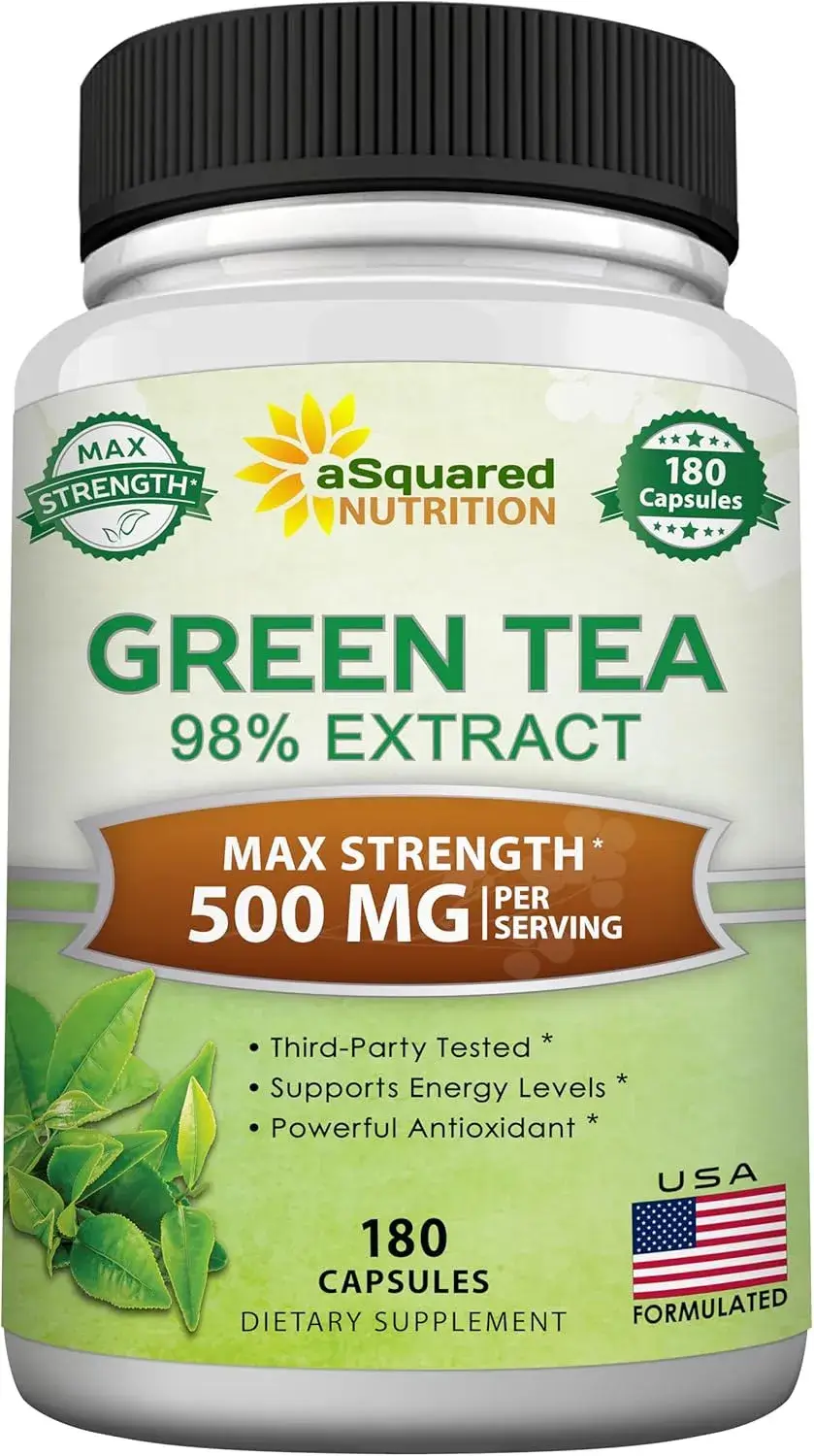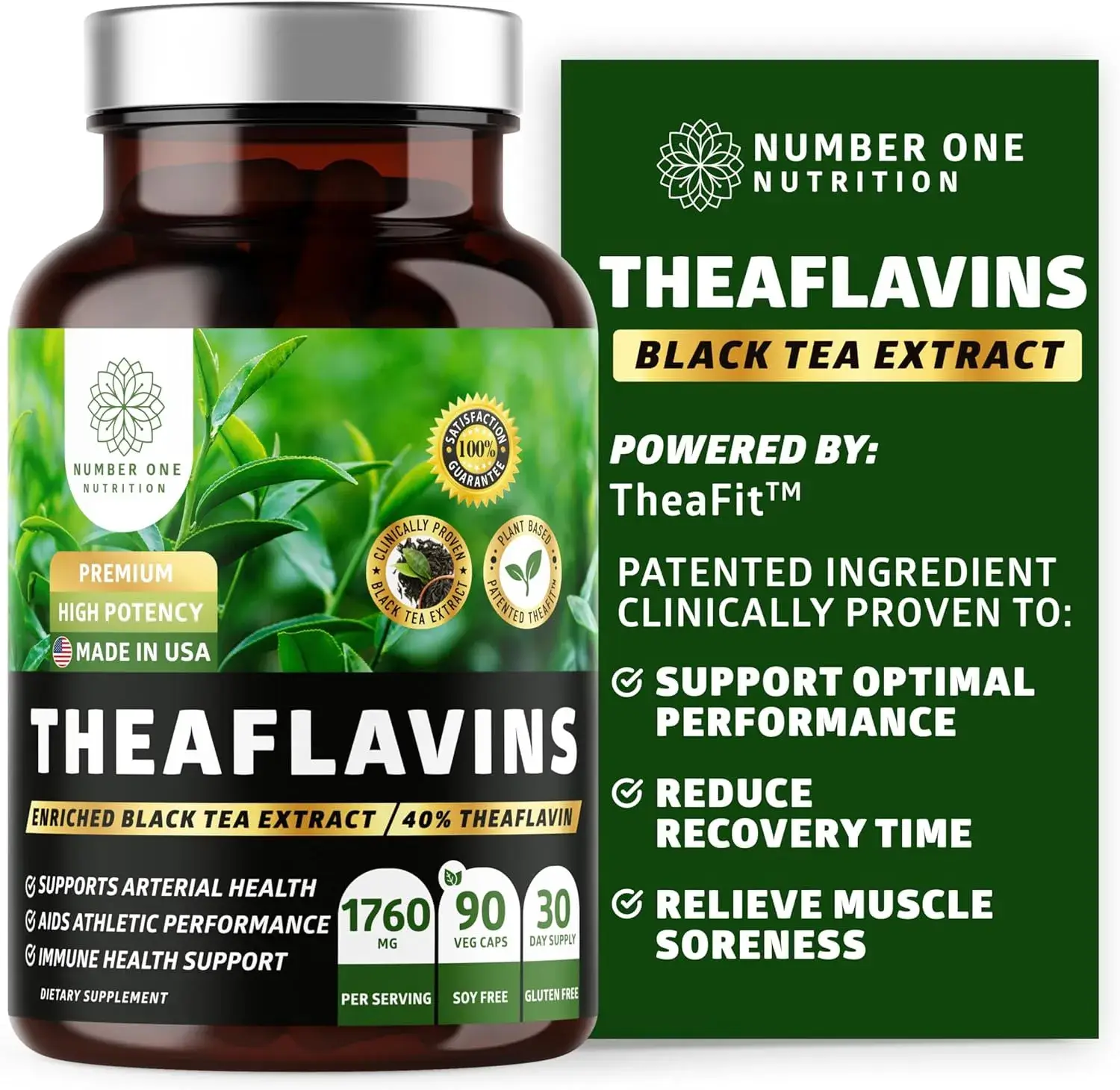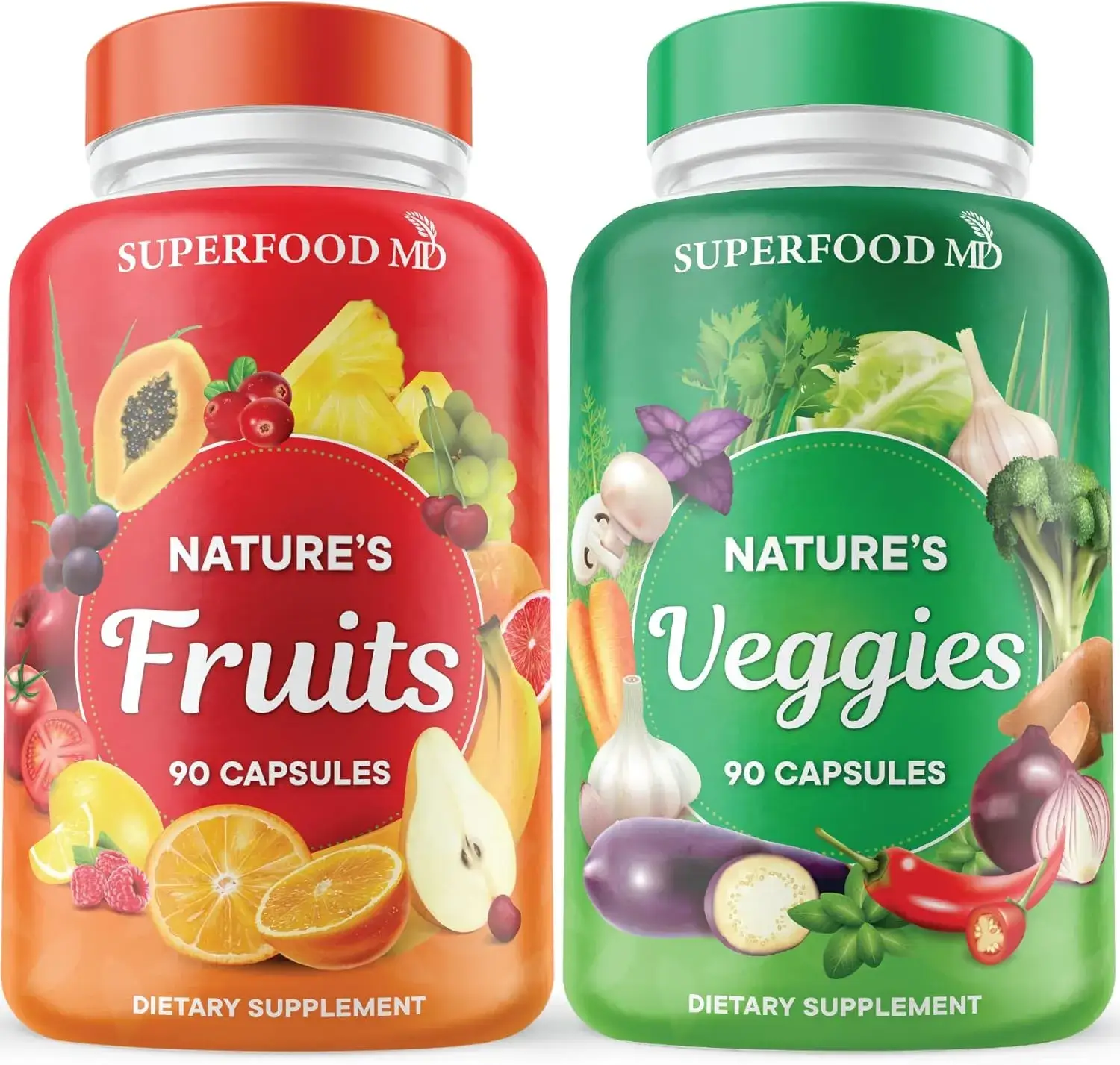Table of Contents
So, you’re wondering about lemon balm tea vs lemon tea, huh? It’s a good question, especially if you’re looking for something soothing or just a nice, bright drink. They both have ‘lemon’ in the name, but they’re actually pretty different. Let’s break down what makes each one unique and when you might want to reach for one over the other. We’ll look at the flavors, how they make you feel, and some fun ways to enjoy them.
Key Takeaways
- Lemon balm tea offers a mild, slightly minty, and floral flavor, often associated with relaxation and calming effects.
- Lemon tea, typically made with actual lemon or lemon flavoring, provides a bright, zesty, and tart taste that’s invigorating.
- While both can be enjoyed hot or cold, lemon balm is favored for its soothing properties, whereas lemon tea is often chosen for a refreshing pick-me-up.
- The ingredients are the main difference: lemon balm is an herb, while lemon tea uses citrus fruit.
- Consider lemon balm tea when you want to unwind, and opt for lemon tea when you need a burst of citrusy energy.
Understanding The Core Ingredients
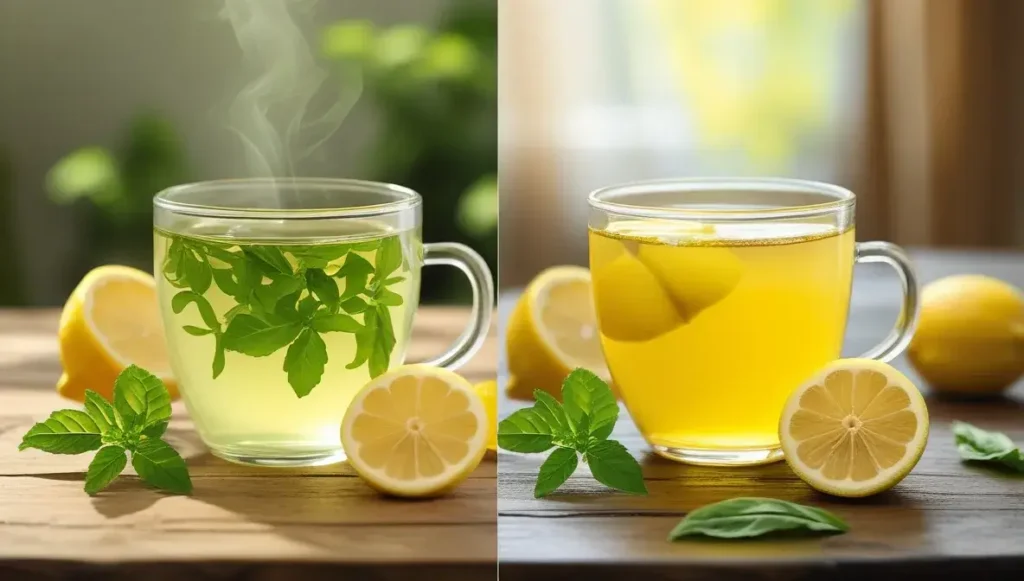
When we talk about lemon balm tea and lemon tea, we’re really looking at two distinct drinks, even though they share a name that hints at citrus. It’s important to know what’s actually in your cup to appreciate the differences.
The Role of Lemon Balm
Lemon balm, or Melissa officinalis, is a herb from the mint family. It’s not a citrus fruit at all, but it gets its name from its distinct lemony scent. People have been using it for ages, often for its calming properties. When brewed into a tea, it has a gentle, slightly sweet, and very mild lemony flavor. It’s not sharp or zesty like actual lemon. Think of it more as a subtle, herbal whisper of lemon.
The Essence of Lemon
Now, lemon tea is pretty straightforward. It’s typically made from the actual fruit of the lemon tree. This means you’re getting that bright, tangy, and unmistakably citrus flavor. Whether it’s brewed with fresh lemon slices, lemon juice, or even lemon peel, the star here is the citric acid that gives lemons their characteristic punch. It’s a flavor that wakes up your taste buds.
Beyond Citrus: Other Flavor Notes
While lemon is the main event in lemon tea, the way it’s prepared can bring out other subtle tastes. For instance, if you use the peel, you might get a slightly bitter or floral note. If you add honey or sugar, that sweetness will obviously play a big role. Lemon balm, on the other hand, can have its own earthy or slightly minty undertones, thanks to its herbal nature. It’s a more complex, layered flavor profile compared to the direct hit of lemon.
Here’s a quick look at what you’re generally getting:
| Ingredient | Primary Flavor Profile |
|---|---|
| Lemon Balm Tea | Mildly lemony, herbal, sweet |
| Lemon Tea | Tangy, zesty, bright citrus |
Flavor Profiles: A Detailed Comparison
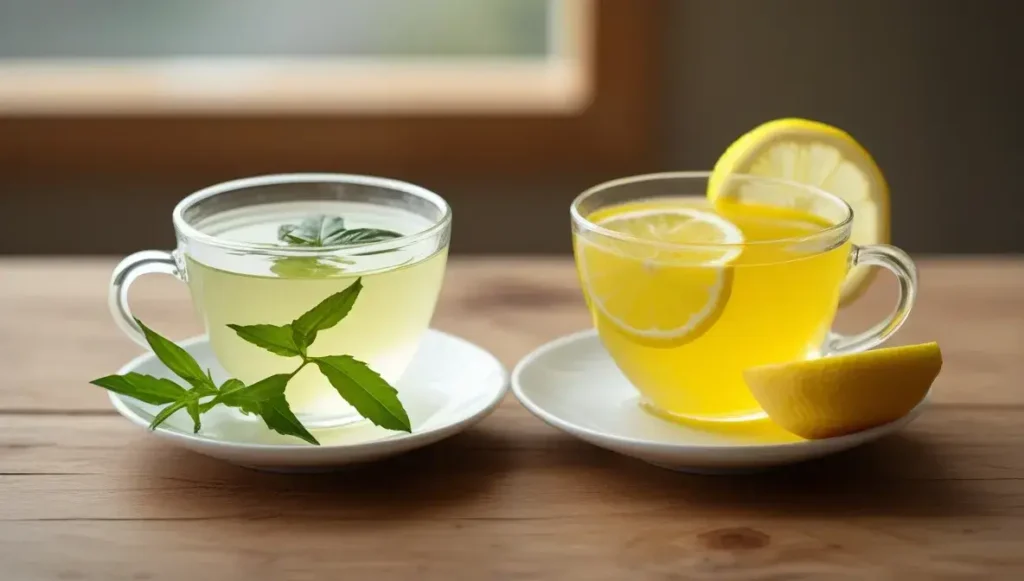
When we talk about flavor, it’s not just about what hits your tongue. It’s the whole experience, right? The smell, the initial taste, what lingers, and even how it feels in your mouth. Let’s break down how lemon balm tea and lemon tea stack up against each other in the flavor department.
Lemon Balm’s Aromatic Qualities
Lemon balm itself has a really distinct scent. It’s often described as being lemony, but it’s softer, more herbaceous, and a bit floral. Think of a sunny garden where herbs are growing – that’s kind of the vibe. It’s not a sharp, zesty lemon smell; it’s more mellow and calming. Some people even pick up on hints of mint or a subtle sweetness in its aroma. It’s a scent that tends to be quite pleasant and inviting, setting a relaxed mood before you even take a sip.
The Zesty Punch of Lemon
Now, lemon tea, especially when made with fresh lemon juice or zest, is a whole different ballgame. The aroma is bright, sharp, and undeniably citrusy. It’s that invigorating smell that wakes you up. The flavor follows suit, delivering a tangy, sometimes sour, punch that’s really refreshing. It’s the kind of flavor that cuts through richness and makes your taste buds tingle. Depending on how it’s prepared, it can range from a subtle lemony hint to a full-on citrus explosion.
Balancing Sweetness and Bitterness
This is where things get interesting. Lemon balm tea, on its own, can have a very mild, slightly sweet, and sometimes subtly bitter profile. It’s generally not overpowering. When you add sweeteners, you can really bring out its natural sweetness. Lemon tea, on the other hand, can lean more towards tartness and can sometimes have a more pronounced bitterness, especially if the peel or pith is involved. Finding that perfect balance between the citrusy tang and any added sweetness is key to a great cup of lemon tea. It’s a bit of a balancing act, trying to get that sweet spot without making it too sour or too sugary.
The interplay between the herbal, calming notes of lemon balm and the bright, zesty character of lemon creates two very different, yet equally appealing, drinking experiences. It really comes down to what kind of flavor journey you’re looking for.
👉 Discover the ultimate lemon balm tea for superior relaxation 👈
Sensory Experience: Aroma and Aftertaste
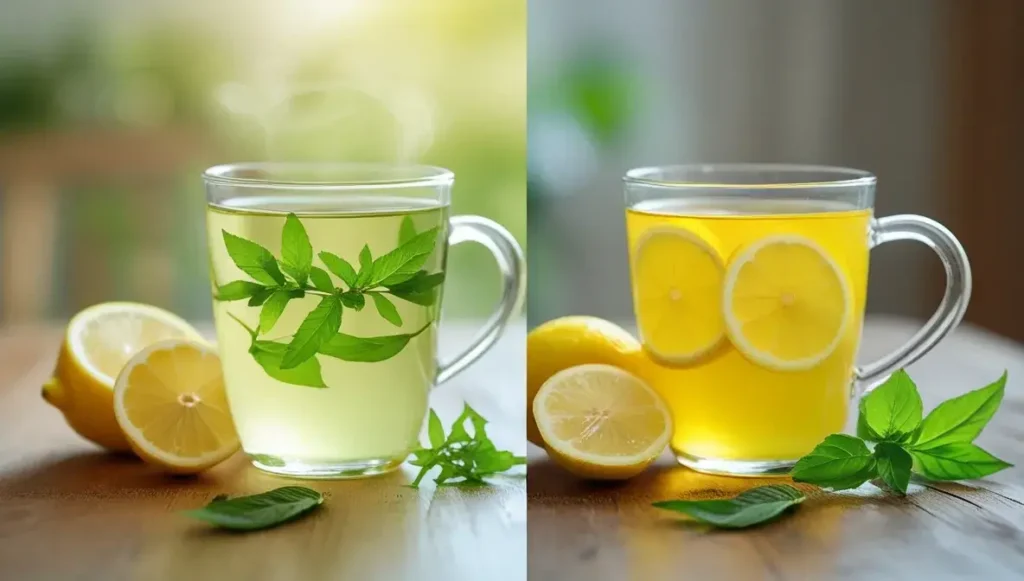
When you take that first sip, what hits you? That’s the sensory experience, and it’s a big part of why we drink tea. It’s not just about the taste, but the whole package – the smell, how it feels in your mouth, and what’s left behind when you’re done.
Initial Aromas of Each Tea
Lemon balm tea often greets you with a gentle, grassy scent, sometimes with a hint of mint or a subtle floral note. It’s usually pretty light and airy. On the other hand, lemon tea, especially if it’s made with fresh lemon or a strong lemon extract, tends to have a much brighter, sharper citrus aroma. You might even catch a whiff of that zesty peel. It’s a more direct, invigorating smell.
Lingering Flavors and Mouthfeel
After you swallow, what remains? Lemon balm can leave a soft, slightly sweet, and sometimes faintly herbal finish. It’s generally smooth and doesn’t stick around too aggressively. Lemon tea, however, can leave a more pronounced citrus tang. Depending on how it’s made, this can range from a clean, bright note to something a bit more tart or even slightly bitter, especially if the pith was involved. The mouthfeel can also differ; lemon balm is often described as smooth, while lemon can sometimes feel a bit more… astringent.
The Impact of Carbonation
Now, if we’re talking about sparkling versions of these drinks, carbonation really changes things. For lemon balm, bubbles can lift its delicate notes, making it feel even lighter and more refreshing. With lemon tea, carbonation can amplify the zestiness, giving it a real kick. It can also sometimes make any bitterness more noticeable. It’s interesting how those tiny bubbles can totally shift the whole experience, right?
Think about it: one drink might make you feel calm and settled, while the other perks you right up. That’s the power of how they smell and feel.
When to Choose Which Brew
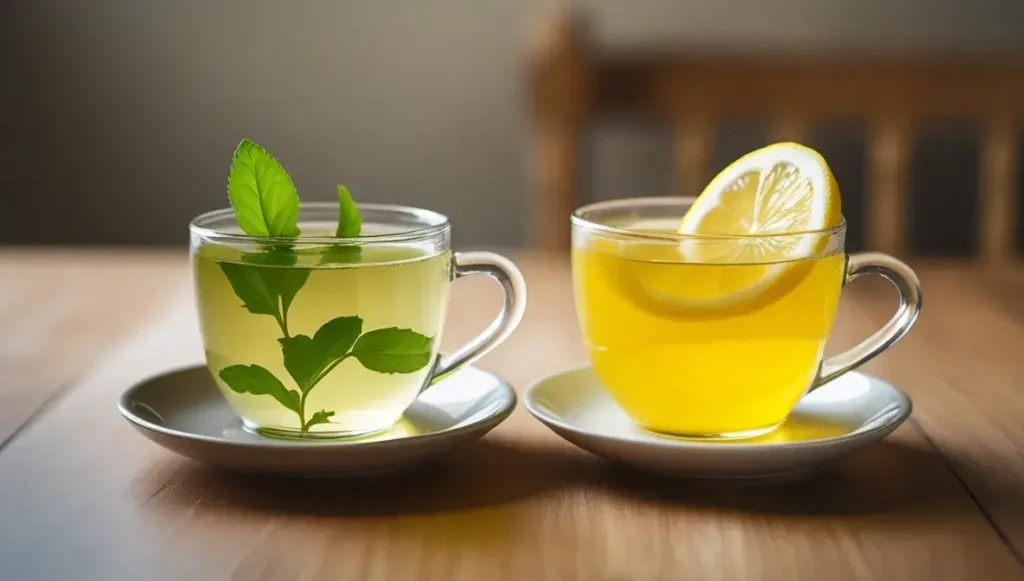
Lemon Balm Tea for Relaxation
When you’re looking to unwind after a long day, lemon balm tea really shines. Its gentle, calming properties make it a go-to for easing stress and promoting a sense of peace. Think of it as a warm hug in a mug. It’s perfect for those evenings when you just want to switch off, maybe read a book, or prepare for a good night’s sleep. The subtle, slightly minty and citrusy notes are soothing without being overpowering, making it an ideal companion for quiet moments.
Lemon Tea for a Refreshing Boost
On the flip side, if you need a pick-me-up, a classic lemon tea is usually the better choice. The bright, zesty flavor of lemon provides an immediate burst of energy and alertness. It’s like sunshine in a cup, great for starting your morning, shaking off that mid-afternoon slump, or just when you need a little zing. It’s straightforward, familiar, and reliably invigorating.
Occasions Favoring Each Drink
Choosing between the two often comes down to the mood and the moment.
- For quiet evenings and stress relief: Lemon balm tea is your best bet. Its mellow character is designed for unwinding.
- For a morning start or an afternoon jolt: Reach for a traditional lemon tea. Its sharp citrus notes are energizing.
- When hosting guests: Consider serving both. Lemon balm can be a calming option for those seeking relaxation, while lemon tea offers a more universally appealing, bright flavor.
- During cold or flu symptoms: While both can be comforting, the specific properties of lemon balm might offer a bit more targeted soothing for a sore throat or general unease.
Ultimately, the decision hinges on what you’re seeking from your beverage at that particular time. Are you chasing calm or energy? That’s the main question to ask yourself.
👉 Try our premium lemon balm tea with proven calming effects 👈
Exploring Variations and Pairings
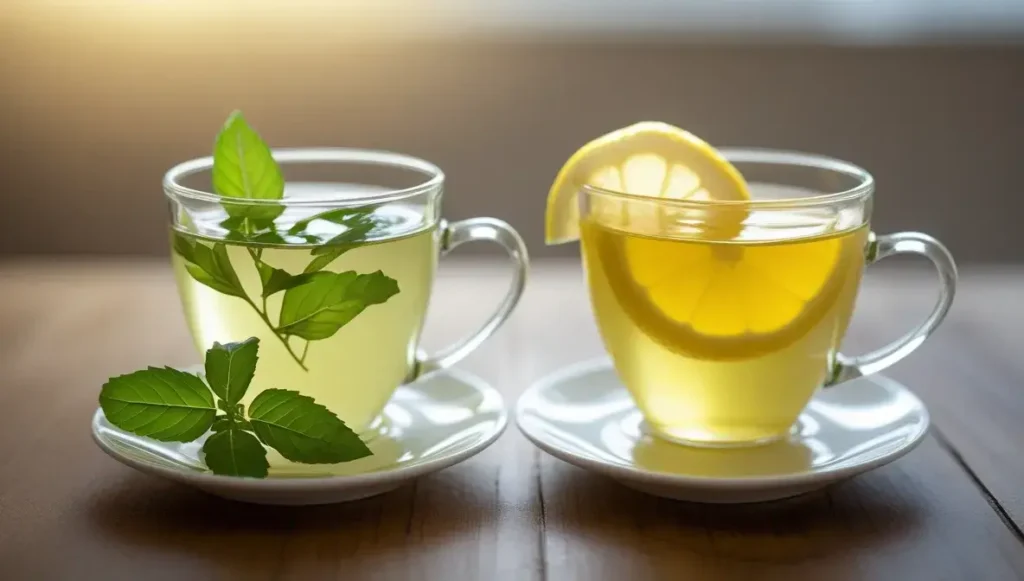
Beyond their basic forms, both lemon balm tea and lemon tea can be quite versatile. Thinking about how to mix things up or what to serve them with can really change the experience.
Sweeteners and Additives
Sometimes, you might want to tweak the flavor a bit. For lemon balm tea, a touch of honey can really bring out its floral notes, making it even more soothing. A little bit of agave nectar works well too if you prefer something vegan. With lemon tea, it’s usually about balancing the tartness. Simple syrup is a classic, but a drizzle of maple syrup can add a different kind of sweetness. Some people even add a splash of ginger or a few mint leaves to either tea for an extra layer of flavor.
Complementary Food Pairings
What you eat with your tea can make a difference. Lemon balm tea, with its calming vibe, pairs nicely with lighter snacks. Think shortbread cookies, a simple fruit salad, or even a plain scone. It doesn’t overpower delicate flavors. Lemon tea, on the other hand, can stand up to more robust tastes. It’s great with a lemon poppy seed muffin, a slice of lemon cake, or even some savory items like grilled chicken or fish where its brightness can cut through richness.
Creative Ways to Enjoy Your Tea
Don’t feel like you have to stick to just drinking it hot or cold. You can make iced lemon balm tea for a refreshing summer drink, maybe adding some berries. For lemon tea, try making a lemon tea granita by freezing sweetened tea and scraping it with a fork. It’s like a grown-up slushie. You could also use either tea as a base for cocktails or mocktails. A splash of gin with lemon tea, or vodka with a sweetened lemon balm tea, can be quite nice.
Remember that the quality of your water and the steeping time can significantly impact the final taste of your tea, no matter what you add to it.
Lemon Balm Tea vs Lemon Tea: Which One Truly Reigns Supreme?
After all that sipping and comparing, it’s clear that both lemon balm tea and traditional lemon tea have their own unique charm. Lemon balm offers a more subtle, herbal note that many found calming, while lemon tea brings that bright, zesty punch we all know and love. Neither one is a clear winner for everyone; it really comes down to what you’re looking for in your cup. If you want a gentle, soothing drink, lemon balm might be your go-to. But if you’re after that classic, invigorating citrus flavor, a good old lemon tea will probably hit the spot. It’s all about personal taste, really.
👉 Experience the revolutionary lemon balm tea trusted by tea lovers 👈
Frequently Asked Questions
What does lemon balm tea taste like?
Lemon balm tea has a gentle, lemony, and slightly minty flavor. It’s known for its calming properties and is often enjoyed for relaxation.
How is lemon tea different in taste from lemon balm tea?
Regular lemon tea, made with actual lemons, has a bright, zesty, and tangy taste. It’s more of a direct citrus flavor.
When is the best time to drink lemon balm tea?
Lemon balm tea is often chosen for its soothing effects, helping to reduce stress and promote sleep. It’s a great choice for winding down.
Why would someone choose lemon tea over lemon balm tea?
Lemon tea is perfect for a quick pick-me-up or when you need a refreshing burst of flavor. It’s energizing and can help wake you up.
Can I add anything to my lemon balm or lemon tea?
You can add honey, ginger, or other herbs to both teas to change their flavor. Lemon balm pairs well with chamomile, while lemon tea can be enjoyed with mint or berries.
Are there health benefits to drinking these teas?
Both teas are generally healthy, but lemon balm is specifically recognized for its calming and stress-relieving benefits. Lemon tea offers vitamin C from the fruit.
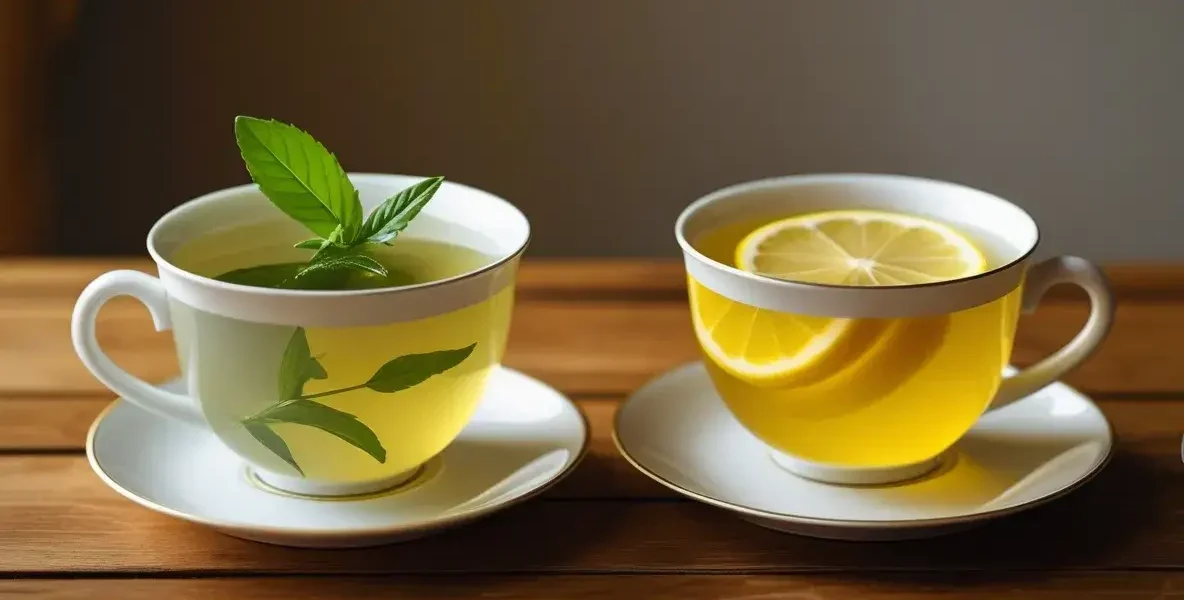


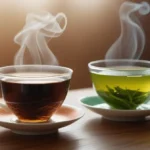
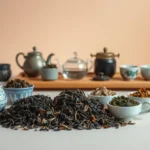


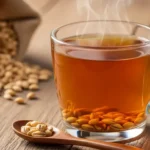

![Jasmine Tea vs Green Tea Benefits: Which Gives Better Health Results? [2025] jasmine tea vs green tea benefits](https://www.goteaworld.com/wp-content/uploads/2025/09/jasmine-tea-vs-green-tea-benefits-150x150.webp)

